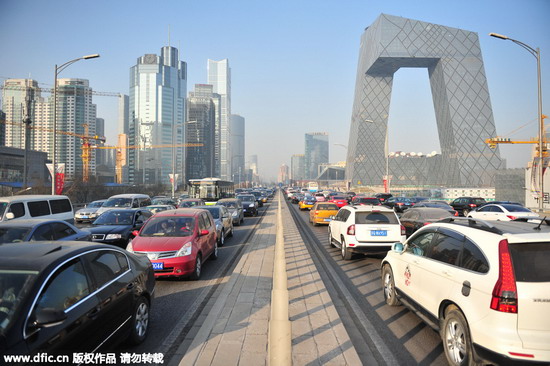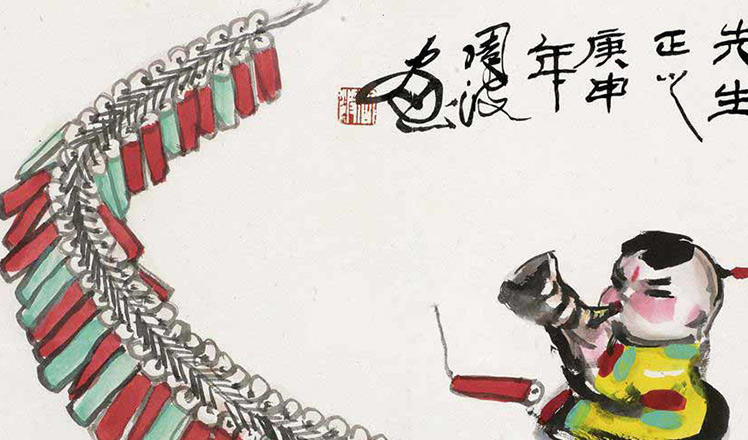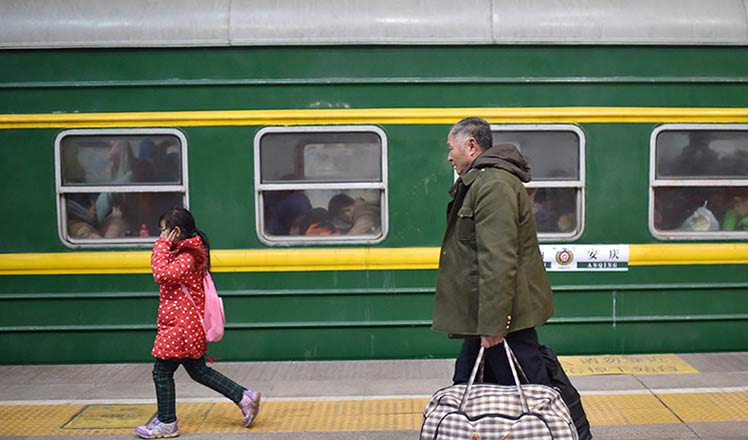Advisers differ on solutions to reduce traffic in Beijing
Updated: 2016-01-22 11:54
By Liu Wei(chinadaily.com.cn)
|
||||||||
 |
|
Masses of vehicles move slowly on a highway during a traffic jam in Beijing, China, on January 18, 2014.[Photo/IC] |
Political advisers appear cautious about possible regulations on how to ease the traffic jam in Beijing just as most of cities in the country also face the same issues in China.
Some members of 12th Beijing Chinese People's Political Consultative Conference (CPPCC) expressed their concerns on easing the jam in the capital by charging congestion fees and limiting people's use of private vehicles.
Shi Xiangyang, a member of Beijing CPPCC, believes it's time for the municipal government to adjust their regulations on traffic.
"If the regulations cannot ease the congestions after it's been applied for over seven years, it is clearly not working. We have to change our approach," said Shi to China Daily website during the local CPPCC in Beijing on Thursday.
For past seven years, Beijing has implemented a regulation that bans cars with plate ending with two different numbers on each work day to keep down traffic volume.
On the days of heavy smog or special events, only half of the vehicles are allowed on the road.
Adviser Zhu Liang said it will inconvenience people's daily life if ban on half of all cars became a regular thing.
But Beijing is not even close to smooth flow of traffic.
According to a report released by taxi-hailing company Didi Dache, people in Beijing waste 7,972 yuan ($1,212) per person on traffic jams last year. On average, commuters in the city spent 52 minutes to complete a 19.2 km trip daily, the longest stretch compared to other Chinese cities.
Shi said the government needs to expand the public transportation services, such as subways and light rails, which are currently far insufficient to meet the demand.
Public transportation facilities should be comfortable and convenient to become the first choice when people plan to go out, he said. "This is the key point to solve the issue."
Shi said experiences from overseas metropolises serve good examples for Beijing on the thorny problem.
- A glimpse of Spring Rush: little migrant birds on the way home
- Policy puts focus on genuine artistic students
- Police unravel market where babies are bought, sold as commodities
- More older pregnant women expected
- Netizen backlash 'ugly' Spring Festival Gala mascot
- China builds Mongolian language corpus
- 2 Chinese nationals killed, 1 injured in suspected bomb attack in Laos
- New York, Washington clean up after fatal blizzard
- 'Plane wreckage' found in Thailand fuels talk of missing Malaysian jet
- Washington shuts down govt, NY rebounds after blizzard
- 7 policemen, 3 civilians killed in Egypt's Giza blast
- Former US Marine held in Iran arrives home after swap

 Drone makers see soaring growth but dark clouds circle industry
Drone makers see soaring growth but dark clouds circle industry China's Zhang reaches Australian Open quarterfinals
China's Zhang reaches Australian Open quarterfinals
 Spring Festival in the eyes of Chinese painters
Spring Festival in the eyes of Chinese painters
 Cold snap brings joy and beauty to south China
Cold snap brings joy and beauty to south China
 The making of China Daily's Tibetan-style English font
The making of China Daily's Tibetan-style English font
 First trains of Spring Festival travel depart around China
First trains of Spring Festival travel depart around China
 Dough figurines of Monkey King welcome the New Year
Dough figurines of Monkey King welcome the New Year
 Ning Zetao, Liu Hong named China's athletes of the year
Ning Zetao, Liu Hong named China's athletes of the year
Most Viewed
Editor's Picks

|

|

|

|

|

|
Today's Top News
National Art Museum showing 400 puppets in new exhibition
Finest Chinese porcelains expected to fetch over $28 million
Monkey portraits by Chinese ink painting masters
Beijing's movie fans in for new experience
Obama to deliver final State of the Union speech
Shooting rampage at US social services agency leaves 14 dead
Chinese bargain hunters are changing the retail game
Chinese president arrives in Turkey for G20 summit
US Weekly

|

|







